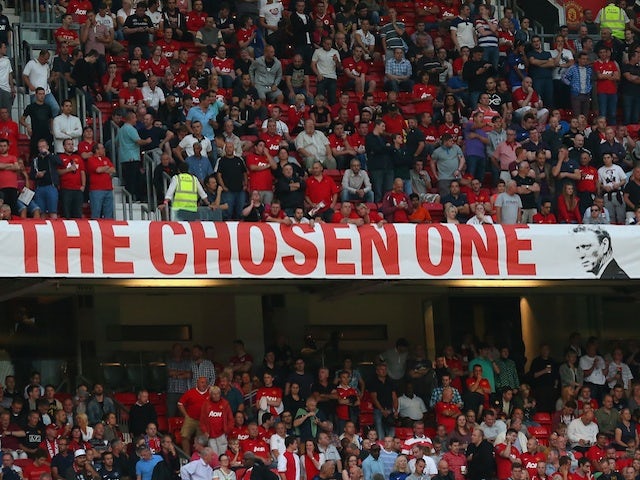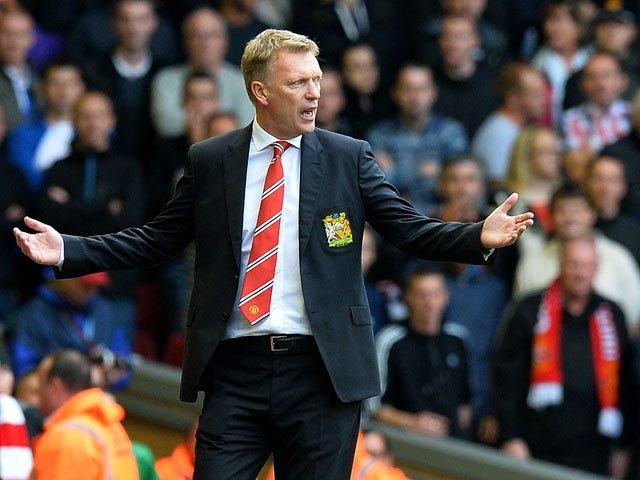"That manager isn't going anywhere by the way. David Moyes will be given time over three or four years to build a football club and learn the ropes. It takes time and he'll be given time."
Those were the words of former Manchester United full-back Gary Neville in October when he analysed West Bromwich Albion's 2-1 victory at Old Trafford on Sky Sports' Monday Night Football.
As Moyes trudged down the touchline yesterday afternoon, hands in pockets, having seen last season's champions, the team that he inherited from Sir Alex Ferguson, lose for a fifth time this term, Neville's certainty may have started to wilt.
Back track a little over 40 years and the Scot's forlorn stance was being perfected by Wilf McGuinness. He, like Moyes, replaced a European Cup and serial league title-winning manager in Sir Matt Busby in the summer of 1969.
A broken leg forced McGuinness, a Busby Babe, to retire at the age of 22. From that point onwards, the former wing-half was involved in the club's coaching setup right up until his retiring mentor Busby decided that at the age of 31, he was primed and ready to step into his size nines – just as Ferguson had a big say in who was to succeed him after his 27 years at the helm.
 © Getty Images
© Getty Images
Fourteen months and 88 games later, McGuinness was sacked. The squad that he had derived may have been European champions 12 months earlier, but it was an ageing one that was in dire need of restoration. When Moyes arrived at Carrington for his first day of work in July, he found Patrice Evra, Rio Ferdinand, Nemanja Vidic, Michael Carrick, Ryan Giggs and Robin van Persie, all of whom are the wrong side of 30 – now 40 in Giggs's case.
Comparing the current United unit to the Liverpool one that he was part of in 1990, Alan Hansen, speaking to The Telegraph, recently said: "Both could be described as ageing teams that needed breaking up, but with issues over those brought in as younger replacements.
"Having won the title last season with a team that could hardly be described as one of the club's best-ever, United made a mistake this summer by failing to add the quality that they clearly need."
The common belief is that McGuinness's fate was sealed by his players, many of whom felt that the job was too big for him. He famously failed to tame George Best (although he was by no means the first nor the last to have trouble with the Northern Irishman), while rumours were rife of disagreements with the other two-thirds of United's 'Holy Trinity' - Sir Bobby Charlton and Denis Law.
Willie Morgan, who joined United in 1968, recently told Sports Mole: "Wilf wasn't the right man. The team was in a process and Matt would have probably changed a few because some of the players were coming towards the end of their careers in fairness. Wilf came in and just wanted to destroy the whole team and nearly did. He was a major part of the downfall."
Paddy Crerand, a United defender of that era, added during a recent interview with The Telegraph: "There was a void at United after Sir Matt stepped down and I felt sorry for Wilf McGuinness having to take over as manager at that time.
"People have spoken about that team being on the slide, but there were still young players around and George was only 23."
 © Getty Images
© Getty Images
Although yesterday it was vehemently denied by Moyes, reports have been rife that last season's leading goalscorer, Van Persie, has grown disenchanted with life at Old Trafford.
New, more physical training methods, among concerns over the team's capabilities to challenge for the major honours, are said to be behind the Dutchman's desire to seek pastures new. In short, this wasn't the vision that he was sold by Ferguson last August.
Then, earlier this week, Ferdinand, who has fallen out of favour of late, hinted at his displeasure regarding the way in which Moyes picks his team. The centre-back's unhappiness at being banished to the stands may mean that such words should be taken with a pinch of salt, but it's an indictment nonetheless.
There are, of course, stark contrasts between McGuiness, who incidentally if three points for a win existed during his tenure would have acquired 23 from his first 15 league matches (one more than Moyes), and the former Everton boss.
Moyes has 15 years (11 in the Premier League) of managerial experience under his belt, whereas McGuinness was a mere novice. The latter also had to contend with the fact that many of the charges under his guidance were not just his former teammates, but also close friends.
Talk of a parting of the ways between the 20-time champions of England and their recently-appointed manager may be a little premature – just as Neville has previously stressed. There are, after all, not many who know the club better than the veteran of 602 appearances. The unambiguous similarities that interlink Moyes and McGuiness are uncomfortably there for all to see, though.







